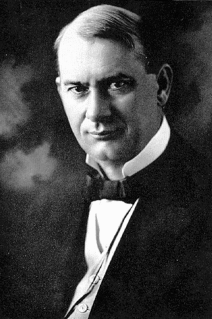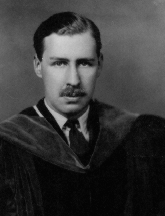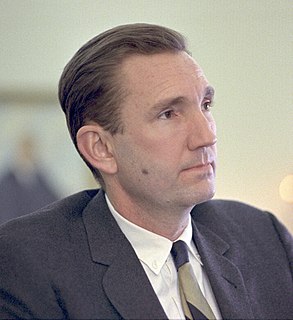A Quote by Joseph Sobran
By today's standards King George III was a very mild tyrant indeed. He taxed his American colonists at a rate of only pennies per annum. His actual impact on their personal lives was trivial. He had arbitrary power over them in law and in principle but in fact it was seldom exercised. If you compare his rule with that of today's U.S. Government you have to wonder why we celebrate our independence.
Quote Topics
Related Quotes
Degrees of ability vary, but the basic principle remains the same: the degree of a man's independence, initiative and personal love for his work determines his talent as a worker and his worth as a man. Independence is the only gauge of human virtue and value. What a man is and makes of himself; not what he has or hasn't done for others. There is no substitute for personal dignity. There is no standard of personal dignity except independence.
Picture the prince, such as most of them are today: a man ignorant of the law, well-nigh an enemy to his people's advantage, while intent on his personal convenience, a dedicated voluptuary, a hater of learning, freedom and truth, without a thought for the interests of his country, and measuring everything in terms of his own profit and desires.
Even 51 per cent of a nation can establish a totalitarian and dictatorial règime, suppress minorities, and still remain democratic; there is, as we have said, little doubt that the American Congress and the French Chambre have a power over their respective nations which would rouse the envy of a Louis XIV or a George III were they alive today.
The rule of law does not guarantee freedom, since general law as well as personal edicts can be tyrannical. But increasing reliance on the rule of law clearly played a major role in transforming Western society from a world in which the ordinary citizen was literally subject to the arbitrary will of his master to a world in which the ordinary citizen could regard himself as his own master
Impeachment appears six times in the U.S. Constitution. The Founders weren't concerned with anything more than with impeachment because they had lived under King George III and had in 1776 accused the king of all the things that George W. Bush wants to do: Usurpation of the power of the people; Being above the law; Criminal abuse of authority.
Communion with God as we hear his voice is rich. We receive his meanings; we submit to his authority; we grow by his power that is at work in our lives through his words; and we experience the glory of his personal presence as we hear him. These aspects go together, though we may sometimes be more conscious of one aspect.
It is not unreasonable to assume that the works of God, their existence and preceding non-existence, are the result of His wisdom, but we are unable to understand many of the ways of His Wisdom in His works. On this principle the whole Law of Moses is based; it begins with this principle: "And God saw all that He had made, and behold, it was very good" (Gen. i. 31); and it ends with this principle: "The Rock, perfect is His work" (Deut. xxxii. 4). Note it.
As the patriots of seventy-six did to the support of the Declaration of Independence, so to the support of the Constitution and Laws, let every American pledge his life, his property, and his sacred honor;-let every man remember that to violate the law, is to trample on the blood of his father, and to tear the character of his own, and his children's liberty.






































